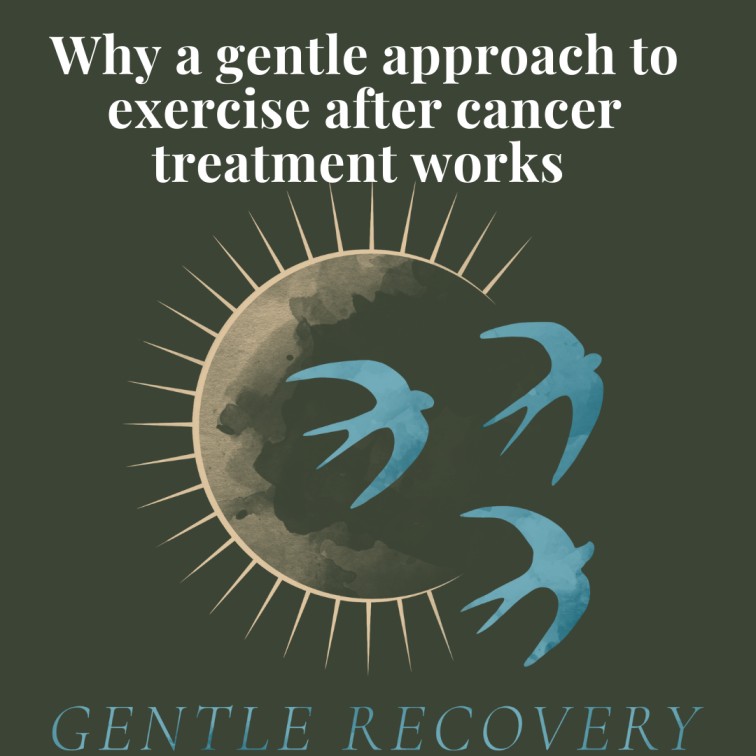
cancer rehabilitation
You don’t need to push hard to get results when you return to exercise after cancer treatment ends. In fact, starting gently, and progressing steadily week-to-week is what is going to achieve better and longer-lasting improvements to your health and well-being.
In this blog post I am going to discuss some of the reasons why returning to exercise gently is key.
1.A cancer diagnosis, and then subsequent cancer treatment IS traumatic, taking time to stop and take stock of what you have been through is very important. Physically your body has undergone some, most-likely, highly invasive and aggressive treatments, you may be left with scars and residual unpleasant side-effects. Your body will not have been able to differentiate this life-saving treatment from being injured.
Emotionally, the shock of a cancer diagnosis and then the potential anxiety and subsequent grief of undergoing body-altering surgery is a lot to deal with. The common experience of apprehension and dread before each chemo and/or radiotherapy session when you know already how gruelling these treatments can be (this apprehension can also manifest physically, for example, feeling nauseated the moment you step in to the clinic even before a chemo treatment begins)! I have named just a few reasons why a cancer diagnosis and treatment can be traumatic but there are plenty more examples including financial difficulties, social isolation… the list goes on.
1.We have been culturally conditioned to believe that we have to push our bodies hard to achieve results when it comes to exercise. We also feel a pressure to return to ‘normal’ life as soon as possible despite our bodies and minds being in this fragile state. The end of treatment marks the end of one phase of your cancer journey, the next very important, but often overlooked stage, is your recovery or rehabilitation phase.
Taking the time to nurse your wounds, so to speak, and to reach out for ongoing support and care is important. How would you treat a loved one who had just been through what you have been through? I am guessing that you would say with tender loving care. Can you offer this level of compassion to yourself?
I believe at this point you need MORE support not less, which is the current medical model.
Returning to exercise in a very gentle way, learning to really LISTEN to your body’s needs and gifting yourself time for daily self-care and compassion is key on the road to recovery. Your approach to rehabilitation needs to be holistic (mind and body), practices like yoga, gentle walking (preferable in nature or a green space) and relaxation practices are great options. All of these approaches help to calm a most-likely rattled nervous, getting through cancer treatment can be a lot about survival, meaning your body was probably in a constant state of fight or flight. Calming your nervous system is very important as we know a stressed body struggles to heal.
I hope this blog has helped you as you navigate this phase of your cancer journey. I know that it can be a confusing and often lonely time after the intensity of the active phase of treatment.
How are you getting on with your rehabilitation?
What’s your favourite form of exercise post active treatment?
Are you achieving your goals?
If you would like support and guidance with your rehab maybe check out my online pre-recorded exercise and wellness course for women who have finished their active phase of treatment? Or perhaps you would prefer some 1-2-1 coaching sessions to get you going with an exercise and wellness programme tailored for your specific needs?
Book a free discovery call!
I would love to hear from you.
Warmest wishes,
India xx